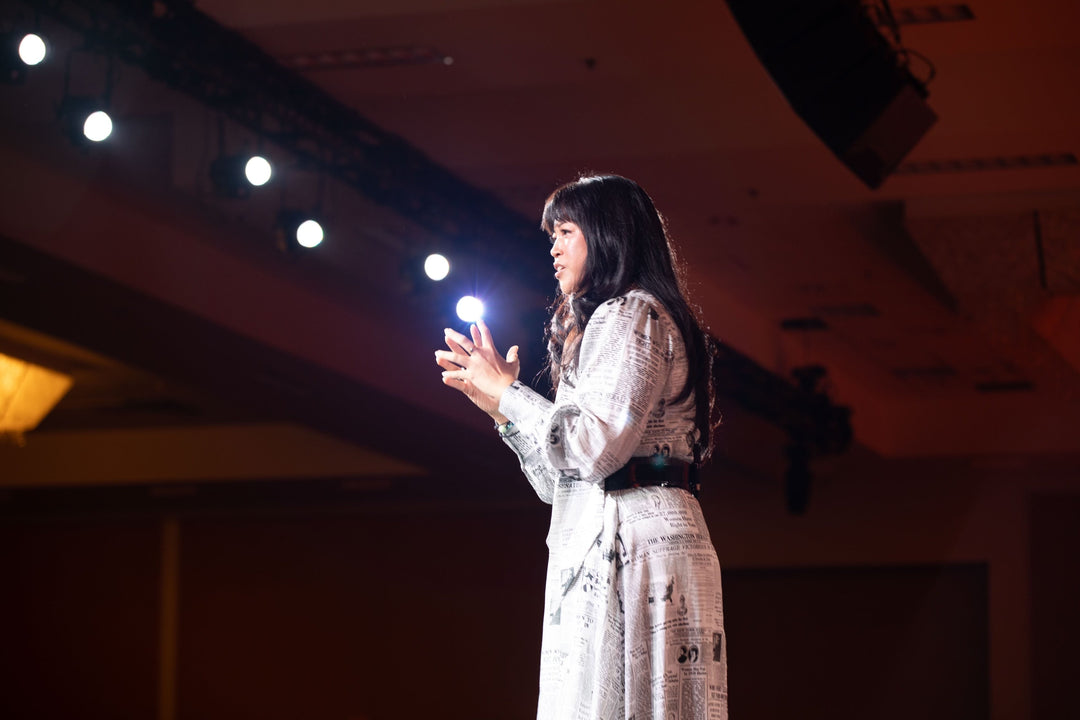Thank You Instead of Sorry
Researchers have found that women apologize significantly more than men, and I believe women apologize too often. Many of us apologize out of habit, but unfortunately it hurts how we are perceived and diminishes our power . How many times do women say “sorry” as a default response, whether or not they’ve done anything wrong?
I am an entrepreneur and a former consultant at McKinsey & Co., and in conducting both qualitative and quantitative research I have observed three types of apologies that women fall into when we find ourselves in uncomfortable situations. I have also found that there are ways to redirect apologetic responses to make them more productive. Here are the kinds of apologies women often offer—and what to say instead.
APOLOGIZING FOR NORMAL INTERACTIONS
Women often say “sorry” when acting outside of the expected script, especially when making a request. As Know Your Value author and TV anchor Mika Brzezinski highlights, “My salary situation at Morning Joe wasn’t right. I made five attempts to fix it, then realized I’d made the same mistake every time: I apologized for asking.” She writes, “I think women have a hard time not apologizing their way into negotiations. We tend to back into these conversations in a self-deprecating and ultimately self-defeating way.”
Apologizing for engaging in reasonable workplace conversation reinforces the idea that we are not worthy of the discussion. Whether or not your employer agrees with your request, engaging in a conversation about compensation is absolutely necessary in any healthy work environment.
APOLOGIZING FOR NOT BEING PERFECT
In the same way, saying “sorry” for situations that are not our fault is a symptom of the mindset that holds women back from applying for jobs until we can check off all—and more—of the skills listed in a job description. We are taught to focus on what we don’t have instead of asking if we have enough of what is required.
Systemic bias has trained us to start with the assumption that the fault or flaw lies with us, that we are less than. There is no need to apologize for not being perfect. Here’s my advice: Apply for the job just as you are.
APOLOGIZING FOR NOT FITTING THE MOLD
Another situation in which women unnecessarily apologize is for situations in which they do not fit the traditional mold. For example, although confidence is multifaceted and based on eight different strengths , the business world often celebrates only two of them: leading and performing (excluding, to my estimation, 80% of the population). Other forms of confidence, especially knowing, giving, and achieving—the ones more likely to be found in women—are less revered. “Sorry I’m not a loud extrovert” is another apology we need to erase from conversation.
REPLACE “SORRY” WITH “THANK YOU”
In all three of these situations, expressing gratitude instead of apologizing can create an effective moment of connection. Next time you write an email or text message, scan it for deficit language. Did you slip in a “sorry?” Take it out, now.
When I help a woman, she will often say, “I’m sorry I took up so much of your time.” My response? “You did nothing wrong, why are you apologizing? What you can do is thank me for my time.”
In this way, “thank you” can often be a suitable replacement for “sorry.” For instance, “Thank you for having this salary conversation with me”; “Thank you for considering my application”; and “Thank you for engaging with me” can draw your conversational partner in without diminishing your power.
My advice is to count how often you say “sorry.” The Toastmasters have a practice called the “Ah-Counter” that takes note of any overused words or filler sounds such as ah, um, er, and you know. These phrases tend to be used as a crutch by anyone who speaks during a meeting.
Inspired by this, I created a personal “sorry-counter” because I believe we say sorry too often as a default, and that word should only be used when we’ve truly done something wrong. Take a day and record how many times you apologize. Then subtract the apologies for actions you took that you are truly sorry for—like spilling coffee on someone’s new shirt, or being late on delivering your part of a presentation. Then count the rest.
The ultimate antidote to apologizing unnecessarily is to learn how to stand in your power. Having gravitas is about appreciating your own unique set of superpowers—without apology. Knowing your unique talents and believing in them creates the strongest foundation for moving through the world.
- Lisa Sun





